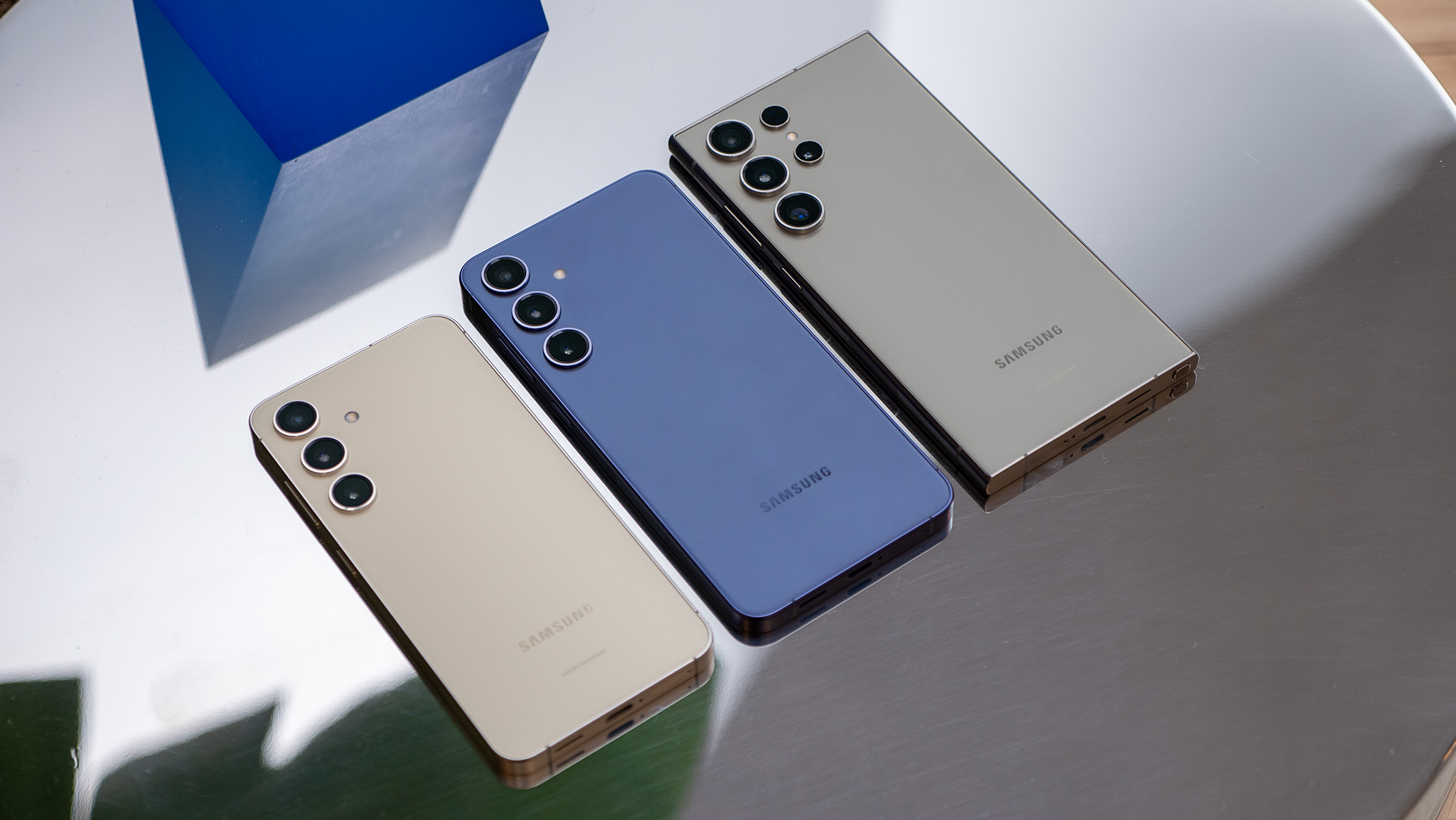5 things I want Google Fit to adopt from Fitbit
Now that Google is bringing Fitbit into the fold, we have wondered what will happen to the Fitbit trackers — especially since it's been confirmed that there will be a Fitbit watch running Wear OS in the future. Since it appears that for the time being, the Fitbit brand isn't going anywhere, and it shouldn't be forgotten about, Google now has two fitness platforms under one roof — Fitbit and Google Fit. It isn't much different from the dual map services of Google Maps and Waze operating under the Google umbrella.
I have been using Google Fit for years through the Wear OS smartwatches I've owned. In that time, I've seen the platform improve in many ways and watch services that support other wearables lap Google Fit in features. I've used Samsung smartwatches in the past, even as recently as the Galaxy Watch 4, and was impressed by the expansive capabilities of Samsung Health. Though I have never personally used a Fitbit product, I have envied parts of the platform from afar, and now that it's part of Google — here are five things I want Google Fit to adopt from Fitbit.
Google Fit needs to be less socially awkward
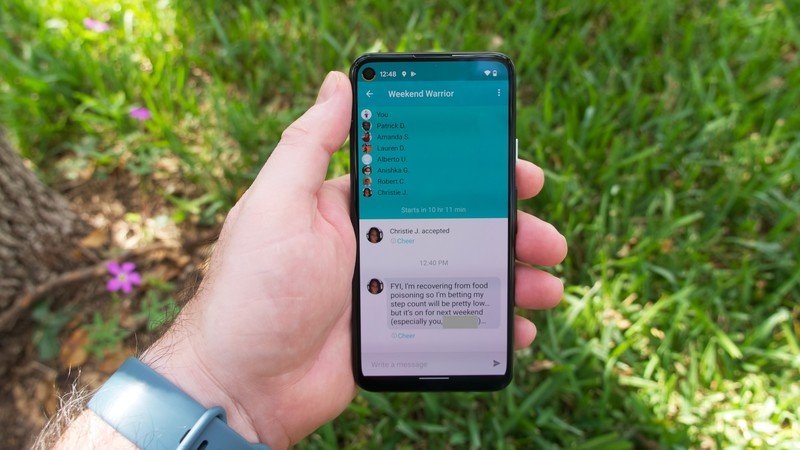
Since the beginning, one of the most significant omissions from Google Fit has been no social connection to the service. Granted, Google has struggled with social networking as much as it has with messaging services. Still, aside from sharing a workout outside the app, there are zero options for competition or encouragement within the service.
Though not everyone wants to be a part of a health and fitness-focused group, and that's just fine. But for people who would like to have that to motivate themselves and motivate others, it should be an option. Sometimes staying on a healthy routine can be difficult when going it alone, and the encouragement from others can help to achieve those goals. The social aspect can also add a layer of accountability which can be helpful too.
Sometimes, all a person needs is a little bit of encouragement to stay on the path to a healthier lifestyle.
Another part of adding a social connection to the Google Fit platform is the competition aspect. While there are rings to complete in Google Fit for heart points and steps, that is a solo task. Adding in the ability to challenge friends and family daily, weekly, monthly, and beyond to conquer the rings of health adds some fun and drive to keep going.
Fitbit does a great job of bringing these kinds of things to its platform, and it doesn't matter if you have the latest and greatest Fitbit Charge 5 or any of the other excellent Fitbit trackers, you can still join in on the fun. There are also fun games and challenges built into the service to give lots of options to competing and encouraging your friends.
Give me some reports
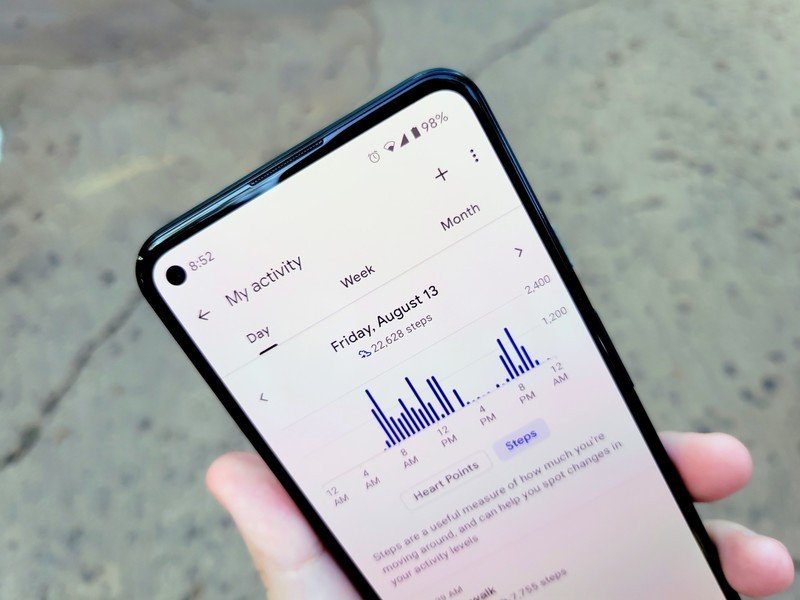
In recent years, Google Fit has done a better job of making it easier to view and add health data, but it is all done within the app and not in the most comprehensive ways. Some information isn't even shown in the app like SpO2 from my TicWatch Pro 3 Ultra my body composition stats from my Withings scale. Even though I have marked this info as something I want to be shared with Google Fit, it's not there. Granted, this could be a glitch between apps.
Be an expert in 5 minutes
Get the latest news from Android Central, your trusted companion in the world of Android
Within the Google Fit app, it's possible to view data for the day, week, month, etc., but that's only for that specific data set. Seeing a trend across multiple health metrics on a single screen or report can be very useful. I know I would like to have the option to manually run a health report from Google Fit and have one emailed to me on a set schedule. This could be good info to provide my doctor at visits and also for my own use.
A periodic wellness report can give a more complete health picture to make more informed decisions.
Fitbit offers a Wellness Report that is downloadable, and it gives a summary of your activity and your health metrics like sleep, heart rate, weight, and more. These kinds of reports allow you to see trends in your health at a glance without jumping around to different screens or only seeing daily info. Viewing how your health is trending over a stretch of time can give both you and medical professionals deeper insights and ways to improve your overall health.
Help and ideas when they are needed
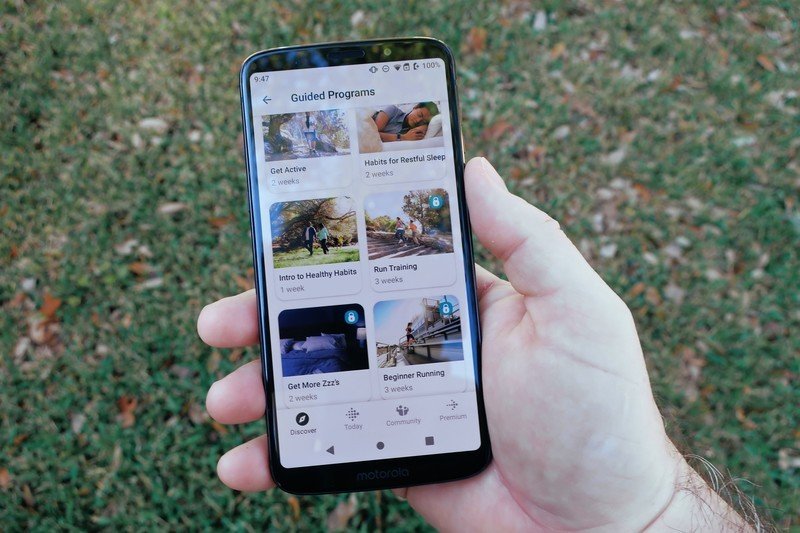
Sometimes a person needs some help and ideas of ways to both get and stay healthy. Yes, there are many great fitness apps out there, but not all integrate with Google Fit. Having a singular place to find various types of workout and health tips can save on the hassle of tracking down the information and jumping from app to app once you do find it.
Google Fit added workout videos from YouTube that are accessible from within the app, but the integration is not great. There are a few categories at the bottom of the app, and once you pick one, it is just a list of videos with no organization. If you know you are looking for a quick strength training workout, you want to be able only to see those kinds of videos — that's not going to happen in Google Fit today.
Fitbit has lots of workouts to choose from, from partner services and original sessions, all from within a single app.
Fitbit offers workouts of its own design as well as from partners like Daily Burn, Les Mills, POPSUGAR. Then if you are looking for something to help with mindfulness and the mental health side, there are sessions from Aaptiv, Calm, Aura, and Deepak Chopra. These coaching sessions are offered from within the app and are organized, making it quick and easy to find what you want — in video or audio form.
Having a broad library of workouts and coaching sessions helps keep your fitness journey from going stale and ensures that you are doing things correctly. Because performing a movement incorrectly can be dangerous and prohibitive to your health goals. Though Google Fit has some of the content available, it's a struggle to find specific exercise types in the app, which is almost as bad as it not being there in the first place.
Sleep tracking is an afterthought for Google
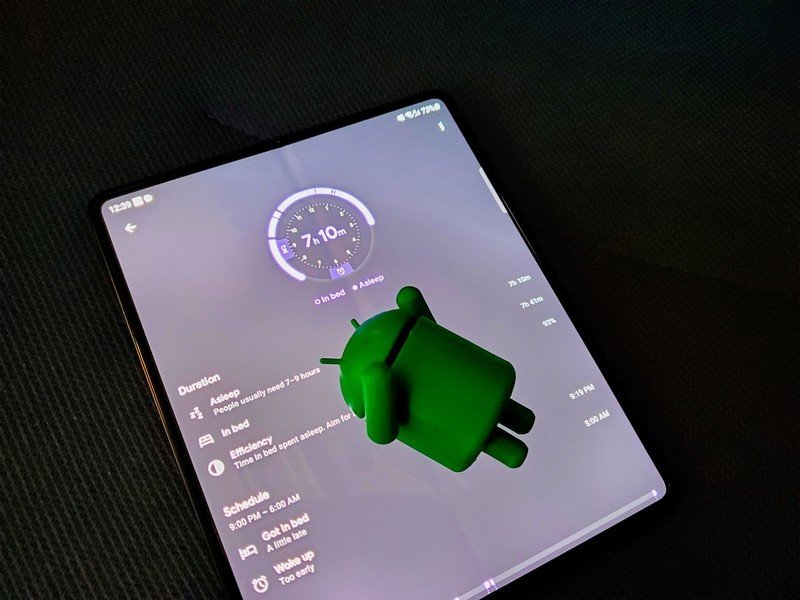
It's strange to me that the only product Google offers with native sleep tracking is a smart display — the Nest Hub (2nd gen). Other brands, including Fitbit, accomplish this through a wearable for a couple of obvious reasons. The device is always with you, and there are multiple sensors built into the machine for more data points.
Yes, Google Fit is a platform and not a device but is part of the bigger problem in Google's health tracking efforts. The company has owned a wearable operating system for years, and sleep tracking is not part of the OS. However, wear OS smartwatch makers like Mobvoi and Fossil have created in-house sleep monitoring software in branded devices to provide users with this helpful feature.
Google Fit will accept sleep tracking data from third-party devices but doesn't offer insight into the info collected.
If you use the sleep tracking features provided by third parties, many can share that info with Google Fit. But once it is in Google Fit, there's no further insight given on the data. All that you get by integrating this data is the expected info such as hours of sleep, when you slept, heart rate, and efficiency. However, if you choose to use the Sleep Sense feature from the Nest Hub, you will also get recommendations on how you can improve your sleep.
Fitbit can provide deeper insight into how you sleep and even track snoring if you want. This data is then broken down, and you get a sleep score. You'll get steps for ways you can improve the quality of your sleep with help from Calm. This service offers relaxation and meditation sessions as part of Fitbit to help you obtain better sleep because good quality sleep is essential for our overall health.
Tracking what you put into your body is an integral part of proper health
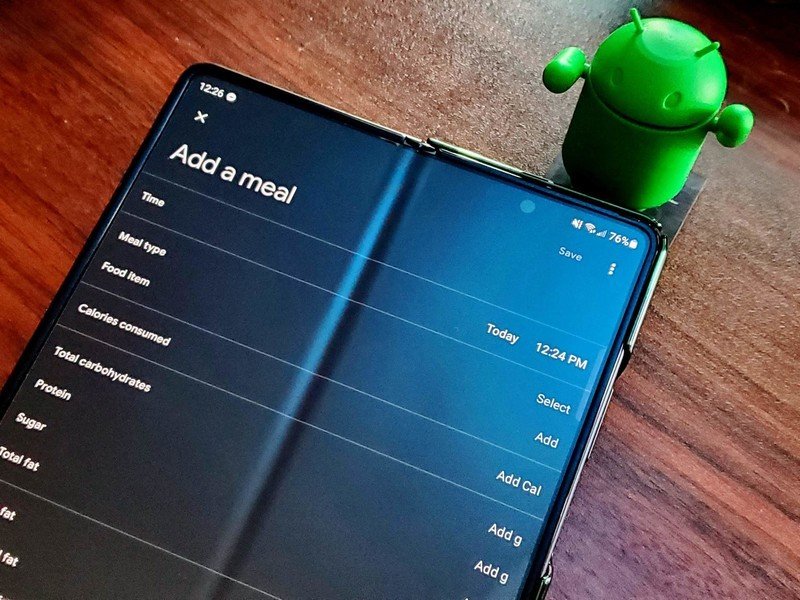
Nutrition is a vital part of our daily lives. Whether good or bad, what we put into our bodies affects our health. For years, I have used an app to help me stay on track with my nutritional goals, and though it does integrate with Google Fit — it's not a complete mirrored record. Again, this could be a roadblock for the data between the two apps. Though you can enter the nutrients from a food item into Google Fit directly, it is extremely basic and offers no insight.
Fitbit allows you to enter food nutrients into the app and supports food plans and barcode scanning. That last feature is so nice because typing in all the nutrition info from a food label is tedious and time-consuming. Fitbit's all-in-one solution removes a lot of the friction of tracking what you put into your body, making it so you can see how your activity and caloric intake affect each other.
Nutrition tracking is not only frustrating within Google Fit, but it's also missing many helpful features offered by other services.
Even if you aren't actively dieting or on a specific nutrition plan, Fitbit has ways to help you find healthy meals. Eating Well partners with Fitbit to provide recipes, cooking videos, and more from within the app. For those who aren't well-versed in healthy cooking or nutrition, the idea of eating properly can be intimidating.
Finding ways to achieve balanced nutritional intake easily, whether trying to meet a specific macronutrient balance or simply getting help with dinner ideas, makes sense from a health and fitness platform. Google has all the tools necessary to aid in making its service capable of providing that information, but as it stands now — it's failing to do so.
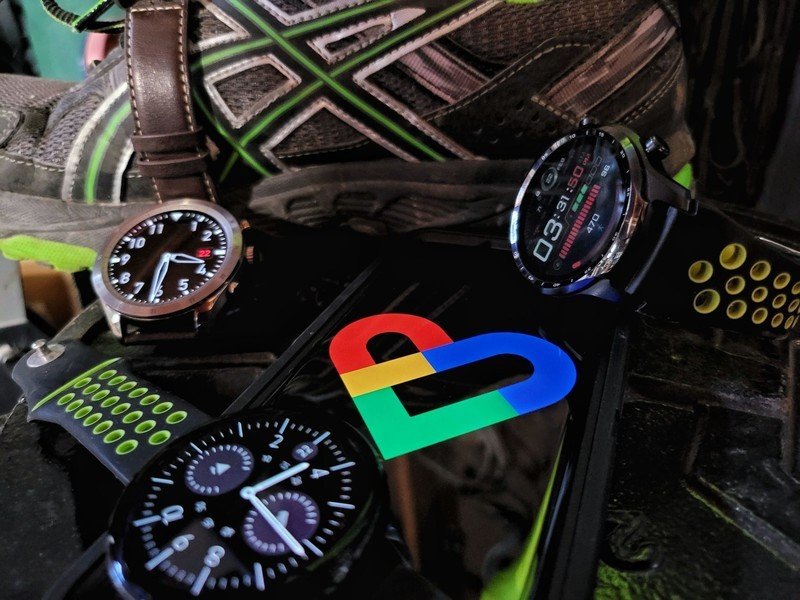
While the official merging of Google and Fitbit is still relatively new, and we may see many of these integrations come to fruition, the Google Fit platform has been complacent for far too long. Hopefully, we can see these two services start to intertwine a bit more. Fitbit can pick up some of the smarts from what Wear OS offers, and Google Fit can integrate a lot of the features of Fitbit. This would allow Google's in-house service actually to compete with Samsung, and maybe even Apple.

